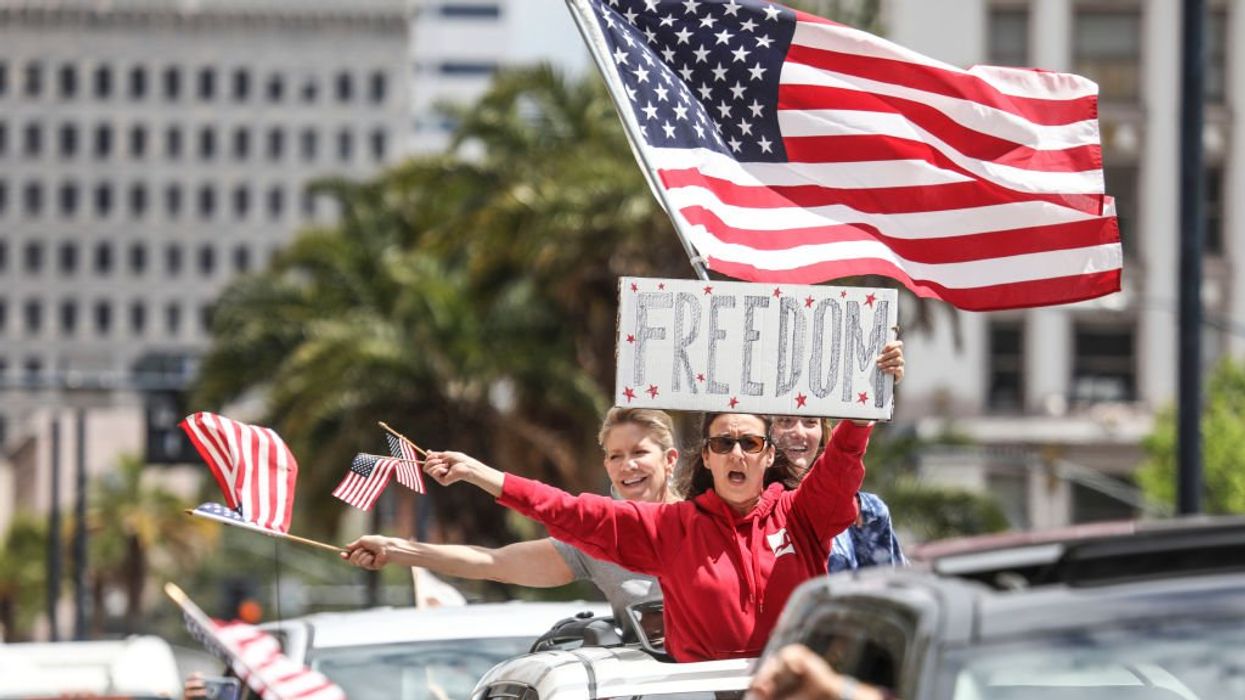
Photo by Sandy Huffaker/Getty Images

A recent poll from RealClear Opinion Research found that one-third of registered Democratic respondents feel Americans have "too much freedom to speak freely."
The poll, released in September, surveyed 1,000 individuals. Of those interviewed, 377 identified as Democrats, 369 as Republicans, and 255 as independent or "other."
According to the director of the RealClear survey, Spencer Kimball, the poll revealed that nine out of 10 respondents support the First Amendment.
"This is agreed upon across the demographics, like party affiliation, age, and race," Kimball told RealClear Politics.
Despite those results, the survey found that Democrats more frequently favor censorship and restrictions on First Amendment rights.
Kimball noted that 42% of individuals under 30 years old stated that it is "more important" to them that the government is able to place restrictions on speech in the interest of "national security." Only 26% of those over 65 agreed.
More than 28% of respondents replied that they do not support speech deemed "deeply offensive to most people."
The poll found that 34% of Democratic respondents believe Americans have "too much freedom to speak freely," while 14.6% of Republicans agreed. Only 22% of Democrats stated that Americans have too little freedom compared to 46% of Republicans. Independent voters were split down the middle for both questions.
When asked whether they agree with the statement "I disapprove of what you say, but I will defend to the death your right to say it," 51% of Republicans and 31% of Democrats said they "strongly agreed."
Additionally, 76.7% of all respondents said freedom of speech should be allowed "without government interference or letting the government decide what types of hateful or inaccurate speech should be banned." However, an overwhelming majority of those polled stated that social media platforms and the government have the "responsibility to restrict hateful posts and disinformation."
A July study titled "Partisan conflict over content moderation is more than disagreement about facts" ran an experiment that showed respondents false headlines aligning with their political party or opposing party.
The study, conducted by professors at the University of California, San Diego, found "a large and statistically significant difference between the content moderation preferences of Republicans and Democrats."
"Social media companies have come under increasing pressure to remove misinformation from their platforms, but partisan disagreements over what should be removed have stymied efforts to deal with misinformation in the US. Current explanations for these disagreements center on the 'fact gap' — differences in perceptions about what is misinformation," the study explained. "We argue that partisan differences could also be due to 'party promotion' — a desire to leave misinformation online that promotes one's own party — or a 'preference gap' — differences in internalized preferences about whether misinformation should be removed."
The study revealed that "even when Republicans agree that content is false, they are half as likely as Democrats to say that the content should be removed and more than twice as likely to consider removal as censorship."
Like Blaze News? Bypass the censors, sign up for our newsletters, and get stories like this direct to your inbox. Sign up here!